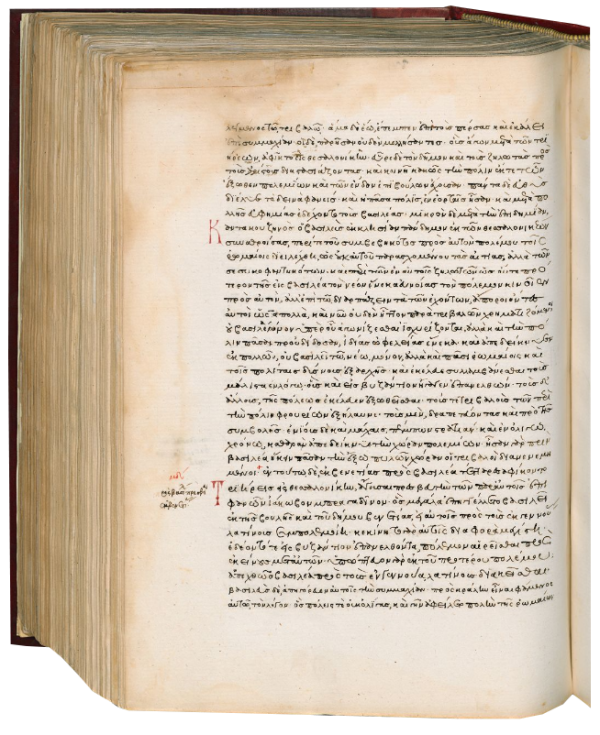1342, John VI Kantakouzenos

John VI Kantakouzenos's meeting with Stefan Dushan:
When the emperor heard that the King and his wife were awaiting him, he greeted them and expressed great joy of a true friend. When he set out from Skopje, [John Kantakouzenos] reached a certain region, which for its beauty is called Paun(?) and there near an unfortified village called Pristina (Πρίστηνον), he met the king, that was there with the wife of his. They received the emperor with all possible attention and respect. They themselves were very pleased with his arrival and rejoiced that such a great honor had been done to them. That's why they left [John Kantakouzenos] always in the front and, as the most respected, they offered him the main places; at feasts they gave him a better and higher place and on journeys and in all other cases they put him in front of them.
It is an ancient tradition among the tribes, that when some mighty noble comes to the prince after a long time, before the first greetings are exchanged they both dismount from their horses: and first bow to each other, and then kiss. in the mouth or on the lips. But in the second meeting, they no longer get off their horses, but greet each other from there. This custom they still preserved: but with the emperor the tribesmen were wont to use the Roman poisons, and whenever they met, they dismounted from their horses and approached on foot, kissing his knee; However, following these accepted rules, he [the King] dismounted to greet him, while the Emperor greeted the approaching one while standing on his horse. Whenever he entered the King's palace (and there he entered almost every day — for he did not wish to remain [long] in his tent, although it was furnished with all good things — and they passed the time in pleasant conversation), he ordered generous young men of honor were waiting for him at the gates; and inside the courtyard he greeted the elders and those fulfilling their duties, who had come out to wait for him at the entrance of the house, while the Emperor greeted those who approached him from his horse. Even the Queen did not respect anything less, leaving nothing that her husband did. And so they behaved whenever the Emperor stayed with them, especially in the first days of his arrival, and when for many days the lord of the tribes had sufficiently expressed his admiration for him [the Emperor], through courtesies and friendship, he finally asked him about the reasons for coming, and what he wanted from him.
Source: Cantakuzen, Jan (1831). Corpus Scriptorum Historiae Byzantinae. Vol. II. Bonn: Impensis Ed. Weber, p. 261–263 (In Greek and Latin). Barišić F. / Ferjaničić B. (1987). Бизянтијски изворы за историю народа Югославије, Vol. 6. Belgrade: SANU, p. 386–387 (In Serbian). A part of this text was also translated into Albanian by Koço Bizhori and Filip Liço in 1975, but it is much shorter. Khs. Bizhori, Koço / Liço, Filip (1975). Byzantine narrative sources for the history of Albania: c. X–XV. Tirana: Institute of History. p. 230. Original document: Biblioteca Medicea Laurenziana, Laurentianus IX, 9. (Translation: Yll Rugova.)